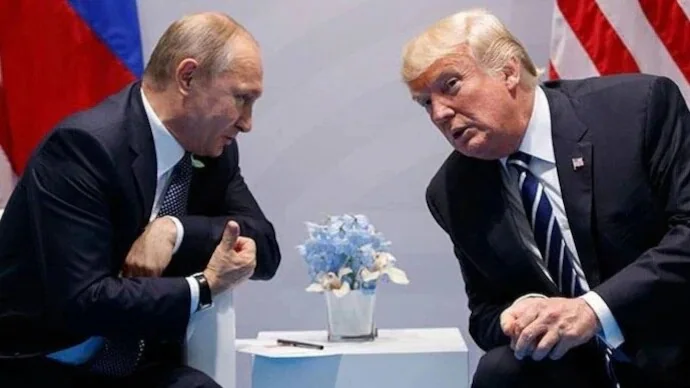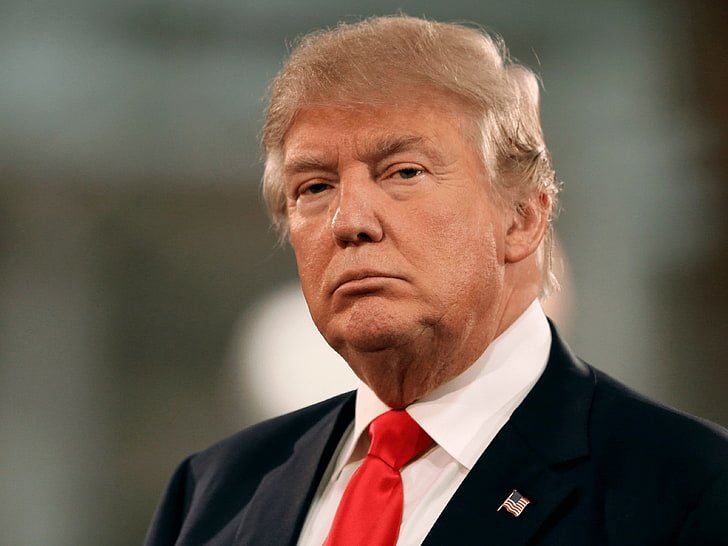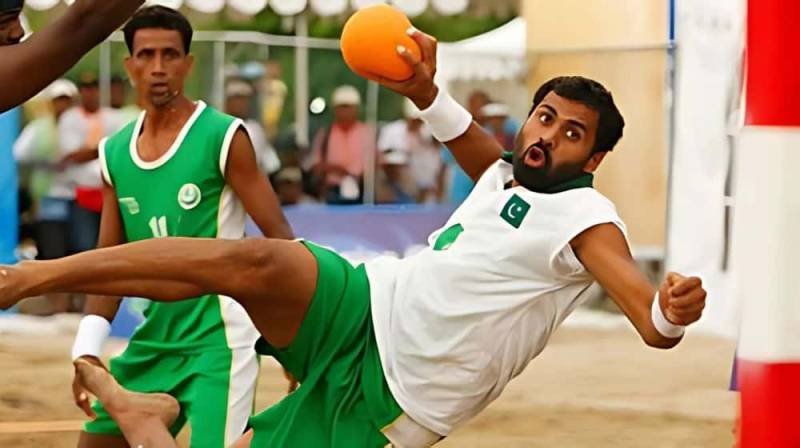Putin Announces Surprise Plan to Cut Defence Spending as US-Russia Ties Stabilize
By Reuters | Updated: June 28, 2025
In a surprising and bold shift in policy, Russian President Vladimir Putin has announced that his country is planning to reduce defence spending over the next three years. This statement comes amid ongoing global tensions, an active war in Ukraine, and an escalating arms race among NATO countries. The timing and intent behind Putin’s remarks have drawn widespread attention and sparked intense debate among analysts, politicians, and defence experts across the world.
A Softening Tone from the Kremlin?
Speaking at a press conference in Minsk, President Putin appeared notably composed as he revealed Russia’s unexpected move toward reducing military expenditure. His statement comes at a time when Western nations are sharply increasing their own military budgets, citing security threats from Russia itself.
“But now here is the most important thing. We are planning to reduce defence spending. For us, next year and the year after, over the next three-year period, we are planning for this,” Putin said.
Putin clarified that there was no final agreement yet between the Russian ministries of defence, finance, and economy. However, he emphasized that “everyone is thinking in this direction.”
He contrasted this with NATO’s recent decision to raise collective military spending goals, implying a philosophical divergence between Russia and the West. NATO members have agreed to raise their defence spending to 5% of their combined GDP within the next decade, a move openly justified by citing the ongoing threat posed by Russia’s actions in Ukraine and Eastern Europe.
“Who is Preparing for Aggression?”
Putin sought to flip the narrative, questioning the motives behind NATO’s growing military budgets.
“Europe is thinking about how to increase its spending, on the contrary. So who is preparing for some kind of aggressive actions? Us or them?” Putin asked rhetorically.
This deflection is likely aimed at both domestic and international audiences. Domestically, it helps to project a more peace-oriented image of Russia. Internationally, it challenges the West’s portrayal of Russia as the primary aggressor.
Nonetheless, these remarks will be met with scepticism in most Western capitals, especially as they come at a time when Russia is actively engaged in a bloody and prolonged conflict in Ukraine. Over the past two years, Moscow has sharply increased its military budget, making Putin’s new message somewhat contradictory.
Russian-American Relations: Signs of Thaw?
The most eye-catching part of Putin’s statement was his positive tone toward the United States, particularly President Donald Trump.
“In general, thanks to President Trump, relations between Russia and the United States are beginning to level out in some ways,” Putin stated, crediting Trump for the stabilization.
He expressed his willingness to meet with Trump and reiterated his “great respect” for the former U.S. president. “Such a meeting is quite possible,” he said, adding that any such summit would require meticulous planning.
These comments signal a rare openness from the Kremlin, especially given the current geopolitical climate. While many Western leaders continue to criticize Russia for its actions in Ukraine, Putin seems to be leaning on his rapport with Trump to revive U.S.-Russia diplomatic engagement.
Trump Responds: “We’re Working on That One”
U.S. President Donald Trump, addressing reporters at the White House on Friday, confirmed that he had a recent call with Putin and suggested that progress might be on the horizon.
“We’re working on that one,” Trump said, referring to the war in Ukraine. “President Putin called up and he said, I’d love to help you with Iran. I said, do me a favor: I’ll handle Iran. Help me with Russia. We got to get that one settled.”
Although he didn’t provide any specific details, Trump hinted that a breakthrough could be near. “I think something’s going to happen there,” he added.
Trump also praised Putin’s earlier comments, stating, “Putin made some very nice statements today.”
Is Peace in Ukraine Possible?
Putin’s remarks come amid stalled negotiations between Russia and Ukraine. The Kremlin leader claimed that Russian and Ukrainian negotiators were in “constant contact” and reiterated that Moscow was ready to return the bodies of 3,000 Ukrainian soldiers as part of ongoing discussions.
He also acknowledged that former U.S. President Trump had previously underestimated the complexities of the war.
“He recently stated that it turned out to be more difficult than it seemed from the outside. Well, that’s true,” Putin commented.
Despite these gestures, the war in Ukraine shows little sign of resolution. Russian forces continue their offensive operations, particularly in the eastern and southern regions of Ukraine. The Ukrainian government, along with many of its Western allies, maintains that Putin has no genuine interest in a peace deal and is instead seeking to gain more territory before entering serious negotiations.
Western Skepticism
Putin’s announcement about cutting defence spending has raised eyebrows in the West. Since the beginning of the Ukraine conflict in 2022, Russia has substantially ramped up its military budget. In 2025 alone, defence spending surged by 25%, reaching 6.3% of the country’s GDP—its highest share since the Cold War.
Defence now accounts for a staggering 32% of Russia’s total federal budget. The state has funded continuous production in military factories and incentivized recruitment through lucrative bonuses for soldiers. Families of fallen troops have received increased compensation as well.
Given these statistics, many Western analysts believe Putin’s declaration could be more rhetorical than practical. They argue that even if cuts are planned, implementing them while the war in Ukraine continues will be difficult, if not impossible.
Russia’s Economy Under Pressure
Behind this shift may lie serious economic challenges. Russia is facing a sharp slowdown in economic growth, aggravated by falling energy revenues and persistently high inflation.
In April 2025, Russia’s finance ministry revised the national budget deficit forecast upward—from 0.5% of GDP to 1.7%. This was largely due to a 24% reduction in expected energy income. The government has had to dip into fiscal reserves to plug the gaps.
The central bank is also struggling to rein in inflation, which has been exacerbated by the heavy costs of war and expanded defence spending.
Putin himself admitted that the increased defence spending had come at a price. “We paid for this with higher inflation,” he said.
The next federal budget draft, due this autumn, is expected to reflect some of these economic pressures. Whether the proposed defence cuts make it into the final version remains to be seen.
Global Reactions Mixed
Initial reactions to Putin’s speech have been mixed. European leaders, particularly in NATO countries, remain cautious. Some have dismissed the announcement as a public relations move designed to deflect international criticism.
A NATO official speaking anonymously noted, “Talk is cheap. Russia’s actions will speak louder than words. If Moscow is serious about reducing aggression, we’ll believe it when we see it.”
Meanwhile, officials in China and Iran have reportedly expressed interest in Russia’s policy pivot, seeing it as a potential sign of strategic recalibration. Whether this will lead to any meaningful realignment remains unclear.
The Bigger Picture: A New Strategy?
Some political analysts believe Putin’s statement could signal the beginning of a broader strategic shift. With the economic strain of war mounting and diplomatic isolation deepening, the Kremlin might be recalibrating its approach to ensure long-term survival.
“Putin knows he can’t sustain this pace forever,” said Elena Orlova, a Moscow-based political analyst. “By announcing cuts now, he can soften public dissatisfaction at home while also testing the waters diplomatically abroad.”
Others suggest the move could be intended to sow division within NATO by presenting Russia as a responsible actor and the West as warmongers.
Whatever the case, the next few months will be critical in determining whether this announcement leads to real policy changes—or if it is simply another geopolitical maneuver in an increasingly tense global landscape.
Frella’s Premier Caffé Praha Expands to Islamabad
Read This Artical
Conclusion
President Vladimir Putin’s unexpected declaration about reducing defence spending has generated global headlines, raised questions about Russia’s strategic intentions, and brought attention to the ongoing pressures on its economy. While the world watches closely, much will depend on whether Moscow follows words with actions. As the war in Ukraine grinds on and diplomatic ties remain strained, this a
Putin Announces Surprise Plan to Cut Defence Spending as US-Russia Ties Stabilize
By Reuters | Updated: June 28, 2025
In a surprising and bold shift in policy, Russian President Vladimir Putin has announced that his country is planning to reduce defence spending over the next three years. This statement comes amid ongoing global tensions, an active war in Ukraine, and an escalating arms race among NATO countries. The timing and intent behind Putin’s remarks have drawn widespread attention and sparked intense debate among analysts, politicians, and defence experts across the world President.
A Softening Tone from the Kremlin?
Speaking at a press conference in Minsk, President Putin appeared notably composed as he revealed Russia’s unexpected move toward reducing military expenditure. His statement comes at a time when Western nations are sharply increasing their own military budgets, citing security threats from Russia itself President.
“But now here is the most important thing. We are planning to reduce defence spending. For us, next year and the year after, over the next three-year period, we are planning for this,” Putin said.
Putin clarified that there was no final agreement yet between the Russian ministries of defence, finance, and economy. However, he emphasized that “everyone is thinking in this direction.”
He contrasted this with NATO’s recent decision to raise collective military spending goals, implying a philosophical divergence between Russia and the West. NATO members have agreed to raise their defence spending to 5% of their combined GDP within the next decade, a move openly justified by citing the ongoing threat posed by Russia’s actions in Ukraine and Eastern Europe President.
“Who is Preparing for Aggression?”
Putin sought to flip the narrative, questioning the motives behind NATO’s growing military budgets President.
“Europe is thinking about how to increase its spending, on the contrary. So who is preparing for some kind of aggressive actions? Us or them?” Putin asked rhetorically President.
This deflection is likely aimed at both domestic and international audiences. Domestically, it helps to project a more peace-oriented image of Russia. Internationally, it challenges the West’s portrayal of Russia as the primary aggressor President.
Nonetheless, these remarks will be met with scepticism in most Western capitals, especially as they come at a time when Russia is actively engaged in a bloody and prolonged conflict in Ukraine. Over the past two years, Moscow has sharply increased its military budget, making Putin’s new message somewhat contradictory President.
Russian-American Relations: Signs of Thaw?
The most eye-catching part of Putin’s statement was his positive tone toward the United States, particularly President Donald Trump President.
“In general, thanks to President Trump, relations between Russia and the United States are beginning to level out in some ways,” Putin stated, crediting Trump for the stabilization President.
He expressed his willingness to meet with Trump and reiterated his “great respect” for the former U.S. president. “Such a meeting is quite possible,” he said, adding that any such summit would require meticulous planning President.
These comments signal a rare openness from the Kremlin, especially given the current geopolitical climate. While many Western leaders continue to criticize Russia for its actions in Ukraine, Putin seems to be leaning on his rapport with Trump to revive U.S.-Russia diplomatic engagement.
Trump Responds: “We’re Working on That One”
U.S. President Donald Trump, addressing reporters at the White House on Friday, confirmed that he had a recent call with Putin and suggested that progress might be on the horizon President.
“We’re working on that one,” Trump said, referring to the war in Ukraine. “President Putin called up and he said, I’d love to help you with Iran. I said, do me a favor: I’ll handle Iran. Help me with Russia. We got to get that one settled President.
Although he didn’t provide any specific details, Trump hinted that a breakthrough could be near. “I think something’s going to happen there,” he added President.
Trump also praised Putin’s earlier comments, stating, “Putin made some very nice statements today President.
Is Peace in Ukraine Possible?
Putin’s remarks come amid stalled negotiations between Russia and Ukraine. The Kremlin leader claimed that Russian and Ukrainian negotiators were in “constant contact” and reiterated that Moscow was ready to return the bodies of 3,000 Ukrainian soldiers as part of ongoing discussions.
He also acknowledged that former U.S. President Trump had previously underestimated the complexities of the war President.
“He recently stated that it turned out to be more difficult than it seemed from the outside. Well, that’s true,” Putin commented President.
Despite these gestures, the war in Ukraine shows little sign of resolution. Russian forces continue their offensive operations, particularly in the eastern and southern regions of Ukraine. The Ukrainian government, along with many of its Western allies, maintains that Putin has no genuine interest in a peace deal and is instead seeking to gain more territory before entering serious negotiations President.
Western Skepticism
Putin’s announcement about cutting defence spending has raised eyebrows in the West. Since the beginning of the Ukraine conflict in 2022, Russia has substantially ramped up its military budget. In 2025 alone, defence spending surged by 25%, reaching 6.3% of the country’s GDP—its highest share since the Cold War President.
Defence now accounts for a staggering 32% of Russia’s total federal budget. The state has funded continuous production in military factories and incentivized recruitment through lucrative bonuses for soldiers. Families of fallen troops have received increased compensation as well President.
Given these statistics, many Western analysts believe Putin’s declaration could be more rhetorical than practical. They argue that even if cuts are planned, implementing them while the war in Ukraine continues will be difficult, if not impossible President.
Russia’s Economy Under Pressure
Behind this shift may lie serious economic challenges. Russia is facing a sharp slowdown in economic growth, aggravated by falling energy revenues and persistently high inflation President.
In April 2025, Russia’s finance ministry revised the national budget deficit forecast upward—from 0.5% of GDP to 1.7%. This was largely due to a 24% reduction in expected energy income. The government has had to dip into fiscal reserves to plug the gaps President.
The central bank is also struggling to rein in inflation, which has been exacerbated by the heavy costs of war and expanded defence spending President.
Putin himself admitted that the increased defence spending had come at a price. “We paid for this with higher inflation,” he said President.
The next federal budget draft, due this autumn, is expected to reflect some of these economic pressures. Whether the proposed defence cuts make it into the final version remains to be seen.
Global Reactions Mixed
Initial reactions to Putin’s speech have been mixed. European leaders, particularly in NATO countries, remain cautious. Some have dismissed the announcement as a public relations move designed to deflect international criticism President.
A NATO official speaking anonymously noted, “Talk is cheap. Russia’s actions will speak louder than words. If Moscow is serious about reducing aggression, we’ll believe it when we see it.”
Meanwhile, officials in China and Iran have reportedly expressed interest in Russia’s policy pivot, seeing it as a potential sign of strategic recalibration. Whether this will lead to any meaningful realignment remains unclear President.
The Bigger Picture: A New Strategy?
Some political analysts believe Putin’s statement could signal the beginning of a broader strategic shift. With the economic strain of war mounting and diplomatic isolation deepening, the Kremlin might be recalibrating its approach to ensure long-term survival President.
“Putin knows he can’t sustain this pace forever,” said Elena Orlova, a Moscow-based political analyst. “By announcing cuts now, he can soften public dissatisfaction at home while also testing the waters diplomatically abroad. President.
Others suggest the move could be intended to sow division within NATO by presenting Russia as a responsible actor and the West as warmongers President.
Whatever the case, the next few months will be critical in determining whether this announcement leads to real policy changes—or if it is simply another geopolitical maneuver in an increasingly tense global landscape. President.
Conclusion
President Vladimir Putin’s unexpected declaration about reducing defence spending has generated global headlines, raised questions about Russia’s strategic intentions, and brought attention to the ongoing pressures on its economy. While the world watches closely, much will depend on whether Moscow follows words with actions.




